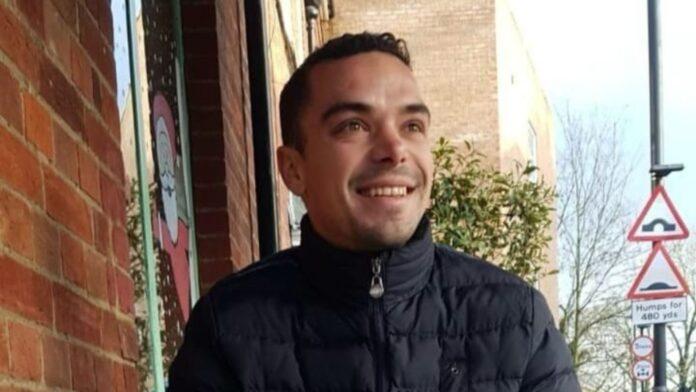I riu shqiptar, Leonard Farruku, i cili u gjet i vdekur në anijen Bibby Stockhom në Britaninë e Madhe, është zbuluar se i kishte dhënë fund jetës rreth 12 orë pas ngjarjes, thotë shoku i tij i dhomës për The Guardian.
Azilkërkuesi u gjet i vdekur në një kabinë dushi në ‘anijen burg’, ndërsa shoku i tij i dhomës Yusuf Deen Kargbo, 20 vjeç, i kërkoi Zyrës së Brendshme të ndalonte përdorimin e saj për të akomoduar ata që kërkonin statusin e refugjatit.
Kargbo, një ish-konkurrent i Lojërave të Commonëealth nga Sierra Leone, tha për The Guardian se Farruku ishte një “njeri i mirë dhe i sjellshëm që gjithmonë buzëqeshte dhe thoshte përshëndetje”.
20-vjeçari tha se ai dhe Farruku kishin ndarë një dhomë për rreth një javë e gjysmë përpara vdekjes së tij, e cila po hetohet nga mjeku dhe Ministria e Brendshme.
“Leonardi nuk fliste shumë anglisht dhe të dy nuk kalonim shumë kohë në dhomat tona gjatë ditës,” tha ai. “Por ai ishte miqësor dhe më tregoi se si t’i varja peshqirët në dhomën e dushit. Ndonjëherë e shihja duke parë video në telefonin e tij. Nuk dija për ndonjë problem të shëndetit mendor që ai mund të kishte pasur.”
Motra e Farrukut, Jola Dushku, 33 vjeçe, e cila jeton në Lombardi, Itali, i tha për The Guardian se vëllai i saj nuk kishte probleme të njohura të shëndetit mendor përpara se të hipte në maune nga Home Office.
Ajo gjithashtu i bëri homazhe atij. “Leonardi ishte më shumë se një vëlla për mua dhe motrën tonë. Ai ishte një person shumë simpatik, ishte plot humor dhe mbi të gjitha ishte shumë i drejtpërdrejtë. Ai kishte shumë miq në Shqipëri dhe mbante marrëdhënie të forta me ta. Ai kurrë nuk do të fliste për askënd pas shpine.”
Karta e tij e identitetit të Home Office, tregon se atij i ishte dhënë leja për të punuar vetëm disa ditë para vdekjes së tij, për faktin se puna e tij, që mendohej të ishte në mikpritje, ishte në listën e profesioneve me mungesë.
Kargbo tha se hera e fundit që e pa të gjallë ishte kur ai shkoi për darkën e tij në dhomën e ngrënies së anijes. Kur u kthye në dhomën e tij pas darkës dhe donte të përdorte tualetin, ai gjeti se dera ishte e mbyllur dhe supozoi se Farruku ishte duke përdorur banjën, kështu që doli nga dhoma dhe përdori një banjë tjetër.
Më pas ai shkoi në një pjesë tjetër të maunes, ku sinjali i ndërprerë Ëi-Fi në bord dihej se ishte më i mirë dhe bëri një telefonatë të gjatë prej rreth një ore e gjysmë në vendin e tij. Më pas, ai u kthye në dhomën e tij, u ngjit në shtrat në majë të krevatit që ndante me Farrukun dhe e zuri gjumi.
Ai u zgjua herët në mëngjes rreth orës 5.30 të mëngjesit dhe pa që shtrati i Farrukut nuk ishte prekur.
Më pas ai shkoi në banjë dhe përsëri pa se dera ishte e mbyllur.
“Trokita në derë dhe vazhdoja të thosha: ‘Përshëndetje, përshëndetje,’ por nuk mora përgjigje,” tha ai. Ai më pas ngriti alarmin me stafin e sigurisë në bord.
“Në fillim nuk më morën seriozisht, por pasi i pyeta sërish, erdhën dhe e panë. Kur nuk morën përgjigje, hapën derën me forcë dhe e gjetën Leonardin pa ndjenja.”
Shoku u nxor me shpejtësi nga dhoma. “Kisha një ndjenjë të keqe për këtë. Policia vazhdoi të më bënte shumë pyetje dhe nuk më lejuan të kthehesha në dhomën time as për të marrë rrobat apo dokumentet e mia,” tha ai.
Ai tha se nuk iu ofrua asnjë mbështetje nga Zyra e Brendshme për t’u marrë me traumën që përjetoi.
“Gjërat janë shumë keq në maune. Frika më e madhe në mesin e azilkërkuesve është se Home Office do të heqë maune nga ankorimi i saj dhe ne do të zgjohemi për të gjetur se po lundrojmë për në Ruanda. Për këtë arsye shumë njerëz kanë frikë të flenë natën.”
Disa ditë pas vdekjes së Farrukut, shoku i dhomës u hoq nga maune si rezultat i ndërhyrjes së shoqatës bamirëse Care4Calais. Ai tani është zhvendosur në një hotel në Cardiff.






